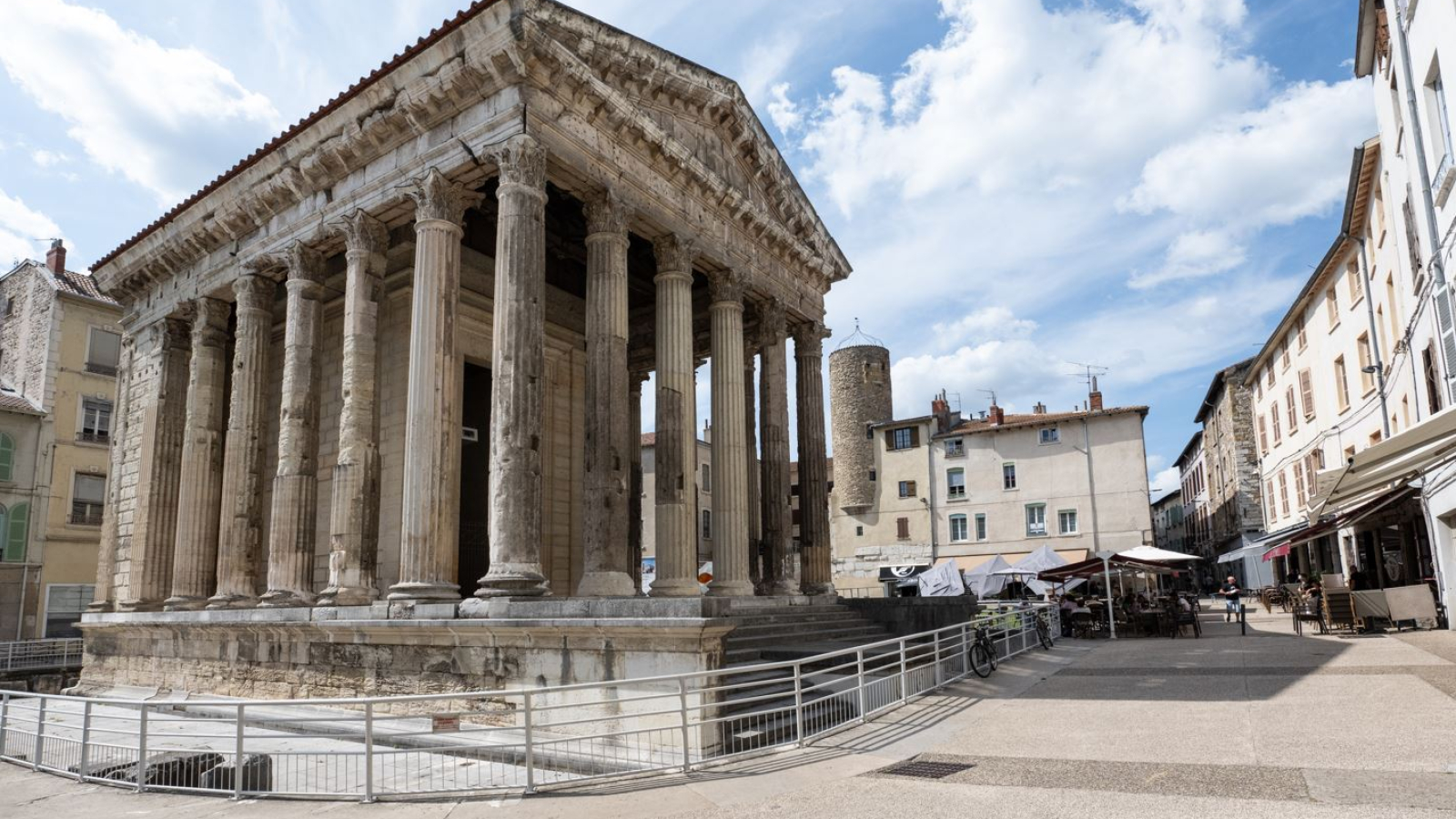Description
This is an example of the transfer to a provincial Gallo-Roman city of the model of a temple raised on a podium, with Roman Corinthian order decoration. Only the rear part is generally thought to have been built early in the reign of Emperor Augustus, in about 20-10 BC. The architectural and decorative variations on the cornice and the capitals, for example, suggest another, later building project on the monument in about 40 AD.
On the eastern side, the frieze and the architrave are engraved with moveable letters in a series of inscriptions. The oldest is a dedication to "Rome and to Augustus Caesar, son of the divine (Julius Caesar)". The two combined subjects of veneration (Rome and the Emperor Augustus), along with Augustus' deified wife, Livia, were an essential political and religious element in integrating local urban populations.
The monument stood on a platform looking out over the banks of the Rhone (to the west) and near a projecting rock (below the law court today). Colonnaded porticoes set apart a sacred area around the temple. It was discovered early on during the excavations. The forum stretched out towards the east with its limit set by a public building featuring the two arcades that can be seen in the Cybèle garden. The forum was a huge, enclosed and monumental public structure. Through its majestic, colonnaded architecture it expressed the civic values or administrative functions of the Gallo-Roman city.





















